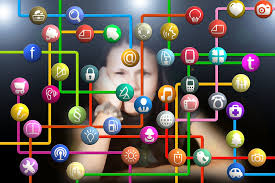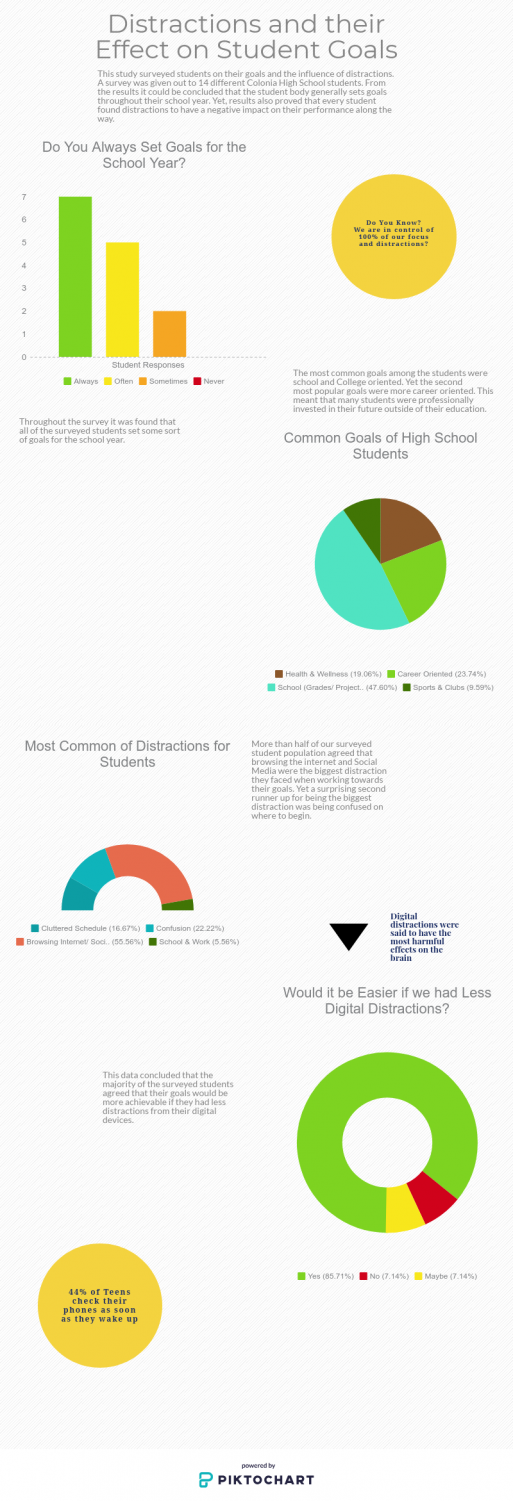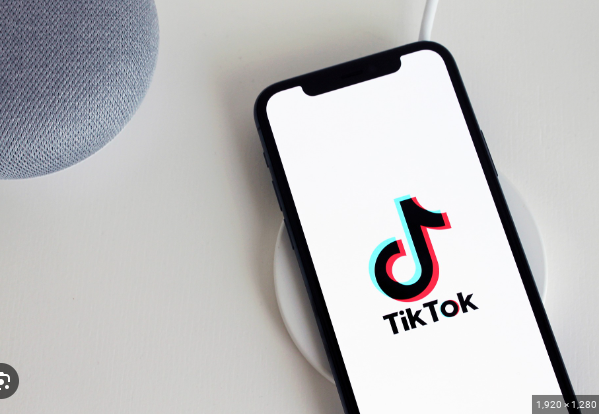
Some time or another we all had something we really wanted to accomplish. Whether it is finishing a final essay, going to that dream destination or even just reconnecting with a friend, we all have goals we want to fulfill. So we settle on a specific goal or outcome we want to bring into our lives and start a journey. But as we move along we tend to get slowed down. It could be harmless; such as being tired that one day and skipping the workout, not meeting that person, or scrolling 20 minutes on Instagram. But these little distractions, how insignificant it may seem, are very deadly to our big goals and dreams in the long run. In this article, we will explore the different types of distractions in our modern world, how they negatively affect us and how we can avoid them.

How do Distractions happen?
In terms of psychology, there is a mental process that occurs when one is distracted according to research done by Psychology Today. First, there is the original Directed Attention. It is what we initially intend to focus on. In this case, it would be the original goal and routine we set. Now there are two major kinds of distractions. First, there is the Hijack. In this situation, we still maintain our focus just shift it on something different. For example, we shift to texting a friend or watching a youtube video. Surprisingly, this is something we voluntarily do due to our brain’s tenancy to want to see what is new and not what is relevant. Attention is not diffused just shifted. But, it is a type of focus that is in the wrong place and at the wrong time.
The second form of distraction is called Aimlessness. In this case, we lose focus and get lost in our own minds. Many people dubbed it “The monkey mind”. This usually occurs after the Hijack due to cognition overload from too much split attention. This, however, happens involuntarily because our brains can’t process too much at once. For example, when we are texting three different friends at once or our one youtube video turns into a 2-hour binge-watching session. Because there are so many different things we want to focus on at once, our brain represses the hardest or most demanding tasks.
Are there forms of Distraction that are actually good for Us?
Fortunately, there is one form of distraction that sparks creativity and initiative. It is called Wandering. This third form of distraction is identical to Aimlessness but in this case, you don’t have to be focusing on anything. This occurs when people daydream or listen to music. However, the two distractions have two very different effects on the brain between having mental overload and letting your mind drift.
How do they affect our overall Performance?
Yet these little, seemingly harmless moments of taking your attention off your tasks make a big psychological impact on our minds in the long run. There are many negative effects of losing focus on what we want or need to do. Research has shown that small distractions such as a text or buzz on our phones can slow down reaction time during situations like driving or other attention-dependent moments. Allowing yourself to get distracted too often can to lead to long term forgetfulness and shorter attention spans. This may lead to less patience in a person, affecting their personality greatly.
Other than losing mental capacity and performance distractions also play a big role in lowering self-esteem. With so many distractions and mental overload, goals seem farther and harder to accomplish. And because distractions are so insignificant they are often ignored when people search for the reasons of their lowered performance. This leads people to feel less confident in their work and confused by their lack of process.
Types of Distractions and Ways to Minimize Them
Throughout our research and surveys we have realized how damaging distractions can be and the psychology behind them. Though our questionnaires about goal setting and distractions we discovered the most frequent kinds of distractions On a positive note, There are many easy ways to minimize these time-wasters and let alone eliminate them from our daily lives.
From Things Around us…
First and most common, we have digital distractions. This includes our phones, television, computer, social media and all the apps that love to grab our attention. If you have to work on the given device it is recommended to delete the apps you waste the most time on (such as games or social media). If these apps are important, consider putting a timer on and stepping away from them when it rings. However, it is suggested that if you really don’t need to use your technological devices, it is much better to step away from them completely. Our survey responses have shown that when students put away their devices they were able to accomplish their goal much more easily.
Secondly, there is physical clutter. This is when we have too many physical things to tend to that are of lesser importance to us. For example, buying too many clothes, keeping an unorganized desk, having an inbox of 2,000 emails. The best way to combat this is to clean or clear away what doesn’t serve us. This means cleaning that messy room, getting rid of those useless clothes or stop attending those useless events. This not only gives you peace of mind but frees up your schedule by a lot!
And Within us…
And thirdly, there is mental clutter. This is when our own psychological stress is in the way of our desired goals and habits. This is what creates the distraction of Aimlessness. Mental clutter is caused through multitasking, repressing unwanted thoughts or resisting anything you do not like in the present moment. The best way to overcome the distraction of mental clutter is by learning to quiet and focus the mind. This can be done through meditation, being aware of the present moment and journaling your thoughts and feelings. That way you can catch yourself before getting lost in your own mind.
To Conclude,
The modern world around us is filled with distractions that can easily trap us. However, with consistent habits of awareness and little choices of working towards one’s goal are the key to achieving our desired success better and faster than ever before!











